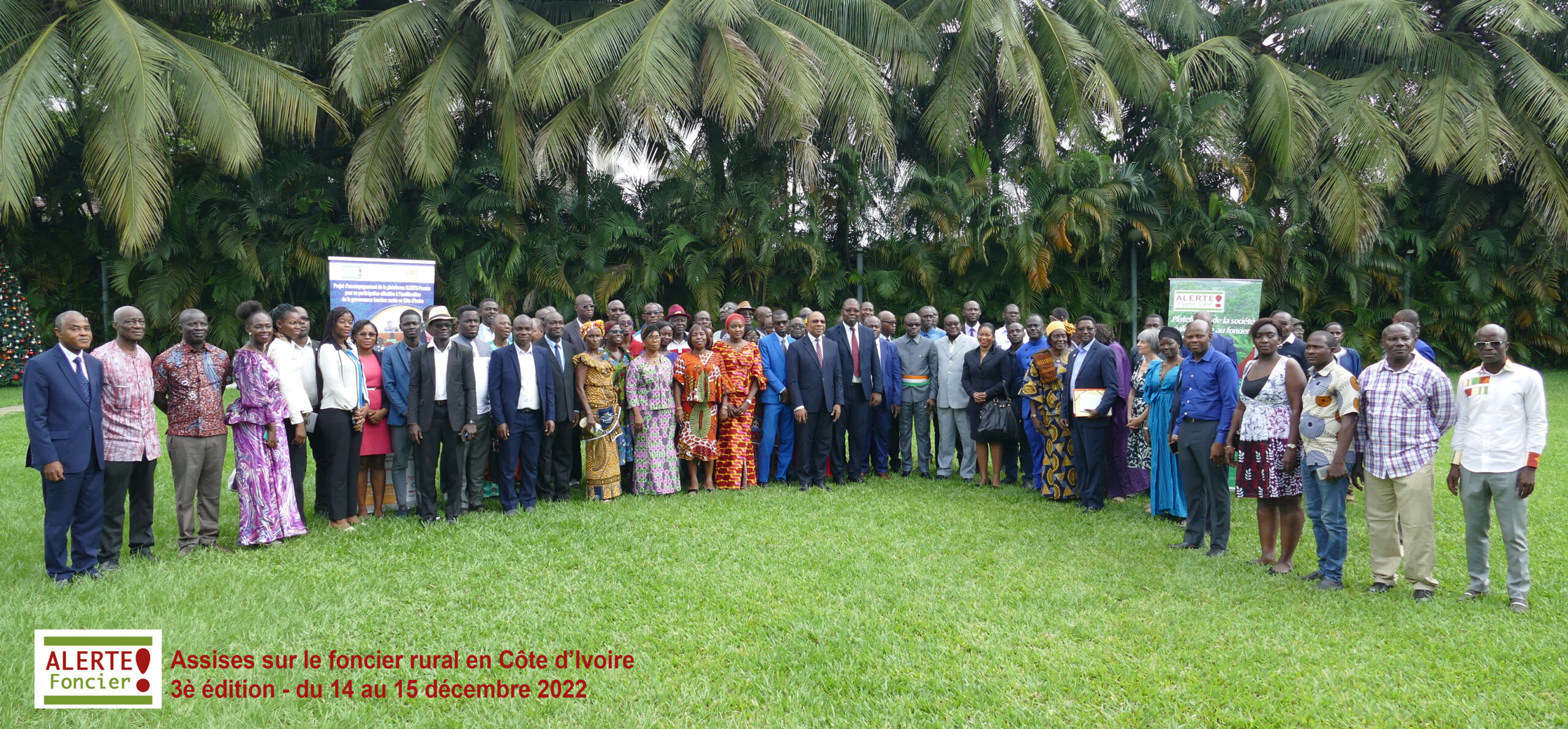From December 14 to 15, 2022, the members of the ALERTE-Foncier platform held, for the third consecutive year, the national conference on rural land in Côte d’Ivoire. The activity took place at the space Latrille Events located in Abidjan -II Plateaux and allowed participants to exchange on violent extremism in connection with land exploitation.
The 3rd edition of the conference on rural land tenure in Côte d’Ivoire was organized by ALERTE-Foncier in partnership with Inades-Formation, the Laboratoire Juridique du foncier de l’Université Alassane Ouattara (LAJFO-UAO) and the Agence Foncière Rurale (AFOR).
The spectre of violent extremism is growing in Côte d’Ivoire, as evidenced by previous incidents. This is why the ALERTE-Foncier platform wished to open a citizen debate on the problems and dynamics of rural land in relation to the expansion of violent extremism, in all their diversity, to decompartmentalize them and to associate them with the national issues of social cohesion in order to help the political authorities to better provide solutions to the question.
This 2022 edition of the conference on rural land in Côte d’Ivoire, which lasted from 14 to 15 December, had as its theme “Violent extremism and land exploitation”.
The results of this inclusive reflection will be addressed to the Ivorian authorities who are working to achieve social and sustainable peace, particularly in rural areas.
Various institutional and non-institutional actors took part in these meetings, including representatives of the Ministry of State, Ministry of Agriculture and Rural Development; the Ministry of State, Ministry of Defense; the Ministry of Foreign Affairs; the Ministry of Justice; the AFOR; the Mayor of Cocody; traditional chiefs; teacher-researchers, including those of LAJFO; and representatives of various civil society organizations.
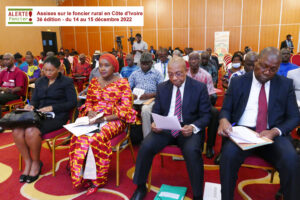
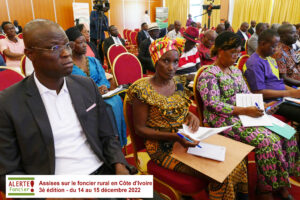
The opening speeches showing the relevance of the choice of the theme
At the beginning of the meeting, during the opening ceremony, Mr. BARIDOMO Pascal, Advocacy Officer at Inades-Formation, representing the Secretary General of Inades-Formation, thanked the different partners and institutions associated and participating in this meeting as well as the participants.
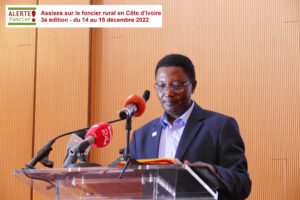 He presented the relevance of the theme chosen for these meetings, emphasizing the international context and its geopolitical character in relation to the land and resources that is found there. In his remarks, he argued that “the phenomenon of violent extremism has become a global concern in a few years… this phenomenon is now linked to access to land and natural resources. Thus, in all states, the question of access to land and resources has become a real sociological and political powder keg, because of the major stakes it represents for the economy, housing, agriculture, livestock, pastoralism, forestry, water resources, mines, etc. “.
He presented the relevance of the theme chosen for these meetings, emphasizing the international context and its geopolitical character in relation to the land and resources that is found there. In his remarks, he argued that “the phenomenon of violent extremism has become a global concern in a few years… this phenomenon is now linked to access to land and natural resources. Thus, in all states, the question of access to land and resources has become a real sociological and political powder keg, because of the major stakes it represents for the economy, housing, agriculture, livestock, pastoralism, forestry, water resources, mines, etc. “.
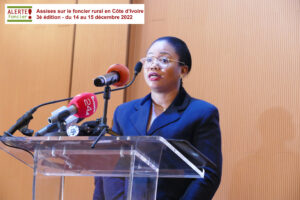 Following him, Mrs. Aline AKA-LAMARCHE, Director of LAJFO and co-organizer of the event, raised the land issues in relation to extremism which she describes as a struggle for the conquest of power. She went on to say that the context of poverty of the populations puts them in a situation of vulnerability and fragility in the face of the expansion of extremism. Finally, it invites the public authorities to go beyond the decisions, to take actions to remove this phenomenon from the Ivorian borders.
Following him, Mrs. Aline AKA-LAMARCHE, Director of LAJFO and co-organizer of the event, raised the land issues in relation to extremism which she describes as a struggle for the conquest of power. She went on to say that the context of poverty of the populations puts them in a situation of vulnerability and fragility in the face of the expansion of extremism. Finally, it invites the public authorities to go beyond the decisions, to take actions to remove this phenomenon from the Ivorian borders.
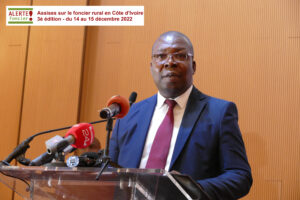 Mr. N’GUESSAN Koffi Rodrigue, representative of the Ministry of State, Ministry of Agriculture and Rural Development (MEMINADER), recognized, for his part, that rural land, given the strong pressure on it and the violence that ensues, is a breeding ground for violent extremism in Côte d’Ivoire. This area represents nearly 70% of the national territory and with 8576 villages and about 50% of the Ivorian population. It is therefore the duty of the MEMINADER to make this sterile ground for terrorism. This requires the fight against poverty in rural areas and the securing of rural land.
Mr. N’GUESSAN Koffi Rodrigue, representative of the Ministry of State, Ministry of Agriculture and Rural Development (MEMINADER), recognized, for his part, that rural land, given the strong pressure on it and the violence that ensues, is a breeding ground for violent extremism in Côte d’Ivoire. This area represents nearly 70% of the national territory and with 8576 villages and about 50% of the Ivorian population. It is therefore the duty of the MEMINADER to make this sterile ground for terrorism. This requires the fight against poverty in rural areas and the securing of rural land.
Panels with experts to strengthen the understanding of the phenomenon of violent extremism and its relationship to land
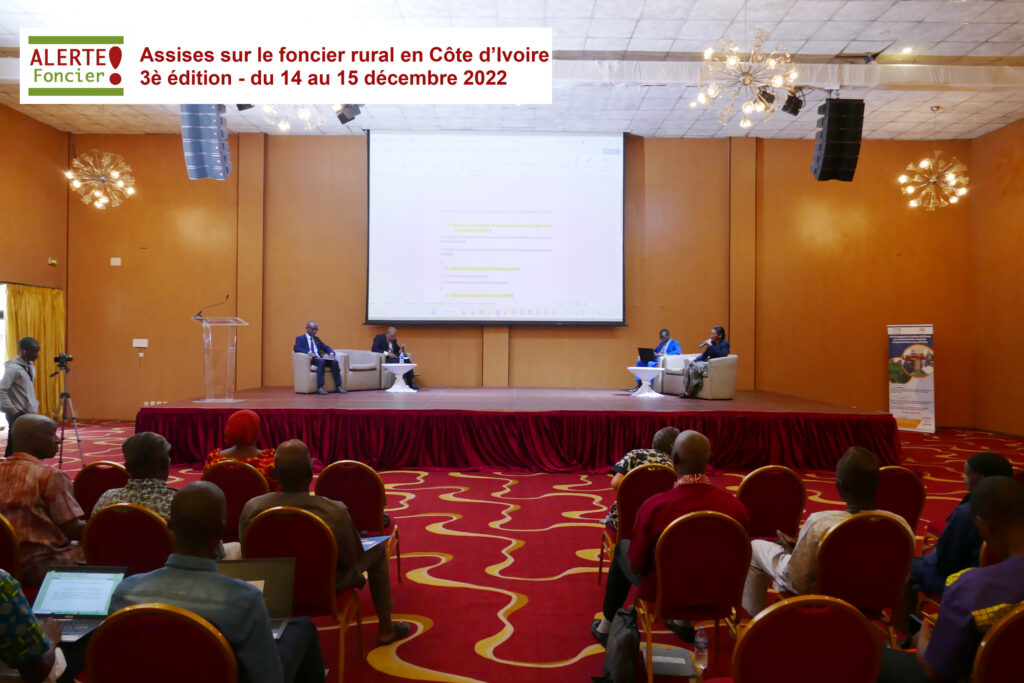 The two days of the conference were filled with panels and presentations on several subtopics. In total, an inaugural presentation and 5 panels allowed participants to better understand the contours and implications of violent extremism.
The two days of the conference were filled with panels and presentations on several subtopics. In total, an inaugural presentation and 5 panels allowed participants to better understand the contours and implications of violent extremism.
In his inaugural presentation on the theme “Violent extremism and territorial occupation: from ideology to the geopolitics of living space”, Dr. FLAN MOQUET, teacher-researcher at Alassane Ouattara University, proceeded to a conceptual clarification; the description of the process of radicalization; the presentation of the ideology; the geopolitics of living space; and the impacts of violent extremism on land.
Violent extremism is linked to other words, notably that of radicalization, which is the fact of basing an individual’s behavior on certain beliefs, certain values. It is the process by which an individual eventually engages in violent behavior based on religious, ethnic, political, etc. motives.
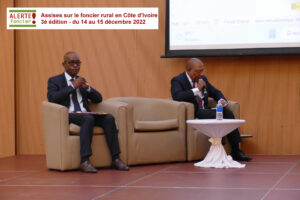
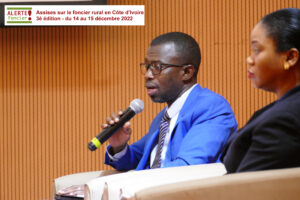
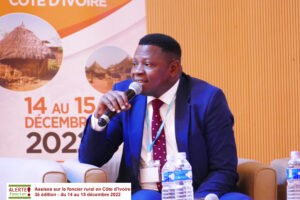
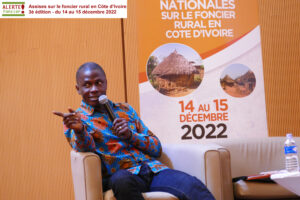 Panels, moderated by prominent panelists, addressed the following issues related to violent extremism and land management: “The public policy responses to violent extremism; the socio-spatial dynamics of the phenomenon “; the stakes involved in controlling land and mining resources; the means of action and the risks.
Panels, moderated by prominent panelists, addressed the following issues related to violent extremism and land management: “The public policy responses to violent extremism; the socio-spatial dynamics of the phenomenon “; the stakes involved in controlling land and mining resources; the means of action and the risks.
Testimonies of village leaders, victims of violent extremism, were also shared.
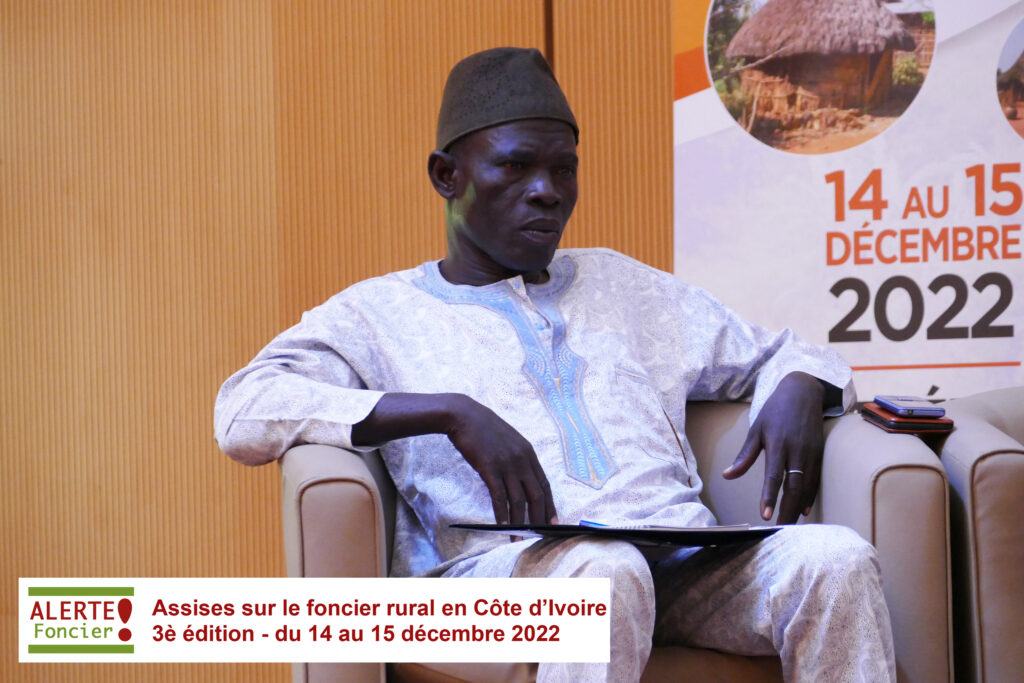 It should be noted that the first part of the conference consisted of forums in the regions of the country to collect the opinions, testimonies and proposals of rural populations. These forums took place in the localities along the Burkina Faso-Côte d’Ivoire border: the departments of Tehini in the BOUNKANI region, Kong in the TCHOLOGO region and in the localities along the Mali-Côte d’Ivoire border: Tingrela in the PORO region, the BAGOUE region and Bouaké, in the GBEKE region
It should be noted that the first part of the conference consisted of forums in the regions of the country to collect the opinions, testimonies and proposals of rural populations. These forums took place in the localities along the Burkina Faso-Côte d’Ivoire border: the departments of Tehini in the BOUNKANI region, Kong in the TCHOLOGO region and in the localities along the Mali-Côte d’Ivoire border: Tingrela in the PORO region, the BAGOUE region and Bouaké, in the GBEKE region
The synthesis of these forums was presented in the special panel before moving on to the exchanges on the technical content to be submitted to the competent authorities.
From these meetings, various proposals and recommendations were made to the different actors at the security, economic and social levels to counter violent extremism and its causes.
The participants congratulated the organizers for these meetings which allowed them to learn a lot about violent extremism and land management in Côte d’Ivoire. They urged the government to take into account the various recommendations.
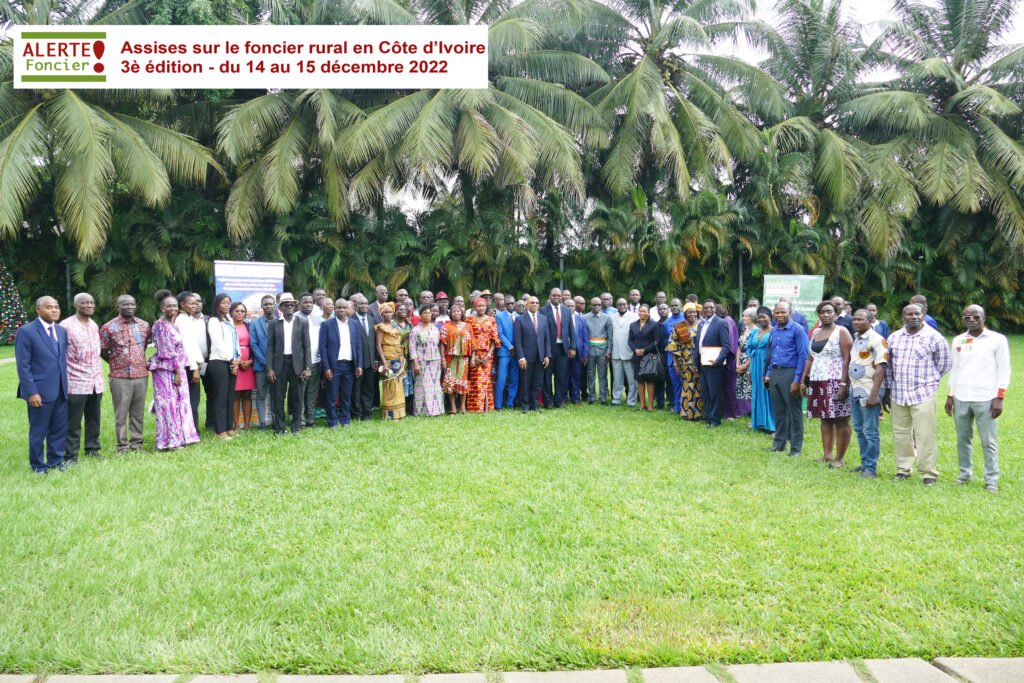
Source: www.alertefoncier.org

